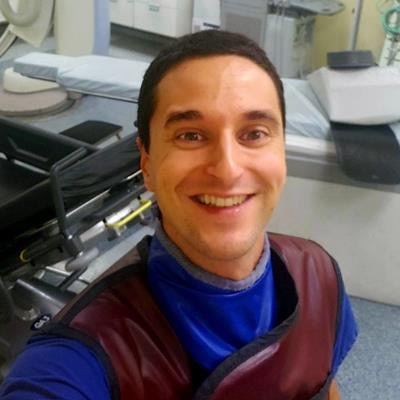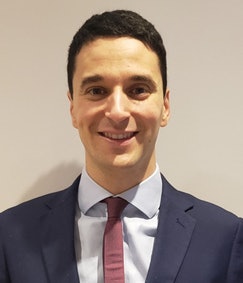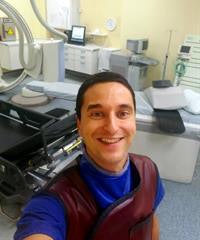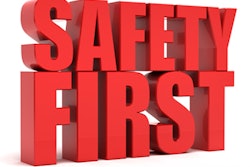
In the era of Brexit and divisive nationalism, the need to promote scientific mobility -- international exchange and collaboration between science and medicine professionals -- is greater than ever to ensure the best evidence-based radiological practices will be a common motivation for the next generation of cross-border radiologists.
The European Society of Radiology (ESR) and the Radiological Society of North America (RSNA) have a central role to play for young radiologists by supporting international training opportunities, enhancing scientific mobility, and promoting cooperation between facilities in different countries. The hope is that these efforts will be pursued over time and even increased, together with governments and scientific institutions. They need to act as the guarantor of international training for residents and young radiologists.
Scientific mobility
While U.S. universities are leading the international higher education market and enrolling unprecedented numbers of foreign students, the European Union (EU) has consistently emphasized its intention to become one of the most competitive knowledge-economies in the world. However, while the EU has many talented and skilled researchers, they account for a significantly lower share of the labor force than is the case in the U.S.
 Dr. Filippo Pesapane.
Dr. Filippo Pesapane.Currently the U.K. and the Netherlands, followed by Sweden, Belgium, and Austria, are the European countries with the largest surpluses of scientific researchers, while almost all other countries demonstrate a deficit -- with the largest for Italy, followed by Germany, Spain, and France, which have a lot of nationals who moved elsewhere thanks to the European grants. The main reasons for losing highly skilled researchers are the lack of research funds and better economic conditions or career opportunities abroad. This affects radiology research too -- much of the research and the education in radiology continue to be done with voluntary time and materials.
The traditional European model of university and research hospitals is currently being challenged. Today, given advances in communication technology, a core group of networked researchers may go a long way toward helping a country with modest scientific resources achieve the analog world-class excellence of the richest countries, in a broader win-win situation.
Scientific mobility as an asset in the new era of radiology
Evidence-based radiology requires multicenter collaboration to identify a best practice, standardize it, and share it. Investing in trainees' mobility means promoting collaboration among centers that cannot remain isolated, and it may help to standardize techniques and terminology in different countries, which are crucial to develop widely shared guidelines.
At the same time, the cultural knowledge and the networks developed during mobility can be used by the trainees to advance in their career. In an era in which artificial intelligence (AI) will change the professional status of radiologists, the collaboration among researchers worldwide will be critical. In this scenario, mobility is still important for both personal development and employability of the future radiologists because it fosters respect for diversity and a capacity to deal with other cultures, which is basic to a high-quality doctor-patient relationship; it encourages linguistic pluralism and increases cooperation between higher education institutions.
The hidden face of the scientific mobility
Although scientific mobility may represent an investment for wider education and a better labor market perspective, this might not necessarily always be the case. Even when a stay abroad is transferred and internationally recognized, employers and colleagues may not always be aware of the value of foreign degrees and experiences, thus treating mobile radiologists as newcomers.
 Pesapane stopping for a selfie.
Pesapane stopping for a selfie.Furthermore, by going abroad, the trainees may weaken their local networks, which can influence their access to new positions. Finally, employers may favor individuals who are familiar with how things are done over people who worked for some time abroad. This is the hidden face of scientific mobility, and perhaps the general theme of "otherness" and "the stranger" has become more urgent than ever given the disturbing flashes of ethnocentrism in the politics of divisive nationalism.
In conclusion, the need to promote international cooperation is even greater today than in the past. European-level competitiveness is positively on the rise and a positive impact on the quality of research can be expected because of the advantages of trainees' mobility.
For further reading, the open-access article "How scientific mobility can help current and future radiology research: A radiology trainee's perspective" (Insights into Imaging, 27 August 2019) provides an overview and a perspective of a radiologist fellow in his last year of training about the current trends and policy tools for promoting mobility among young radiologists, especially inside the EU, and it can encourage a discussion on the present and future conditions of young radiologists.
Dr. Filippo Pesapane is a senior resident radiologist in his fifth year of the postgraduation school in radiodiagnostic of the University of Milan in Italy. He has had spells in Belgium at the University Hospital of Gent, in the U.S. at the National Institutes of Health in Bethesda, Maryland, and in the U.K. at the King's College Hospital and Royal Marsden Hospital in London. He focused his training on breast and urogenital imaging, and he developed skills on radiomics and AI's applications in radiology. He was the recipient of the 2019 EuroMinnies Radiology Rising Star award.
The comments and observations expressed herein do not necessarily reflect the opinions of AuntMinnieEurope.com, nor should they be construed as an endorsement or admonishment of any particular vendor, analyst, industry consultant, or consulting group.



















